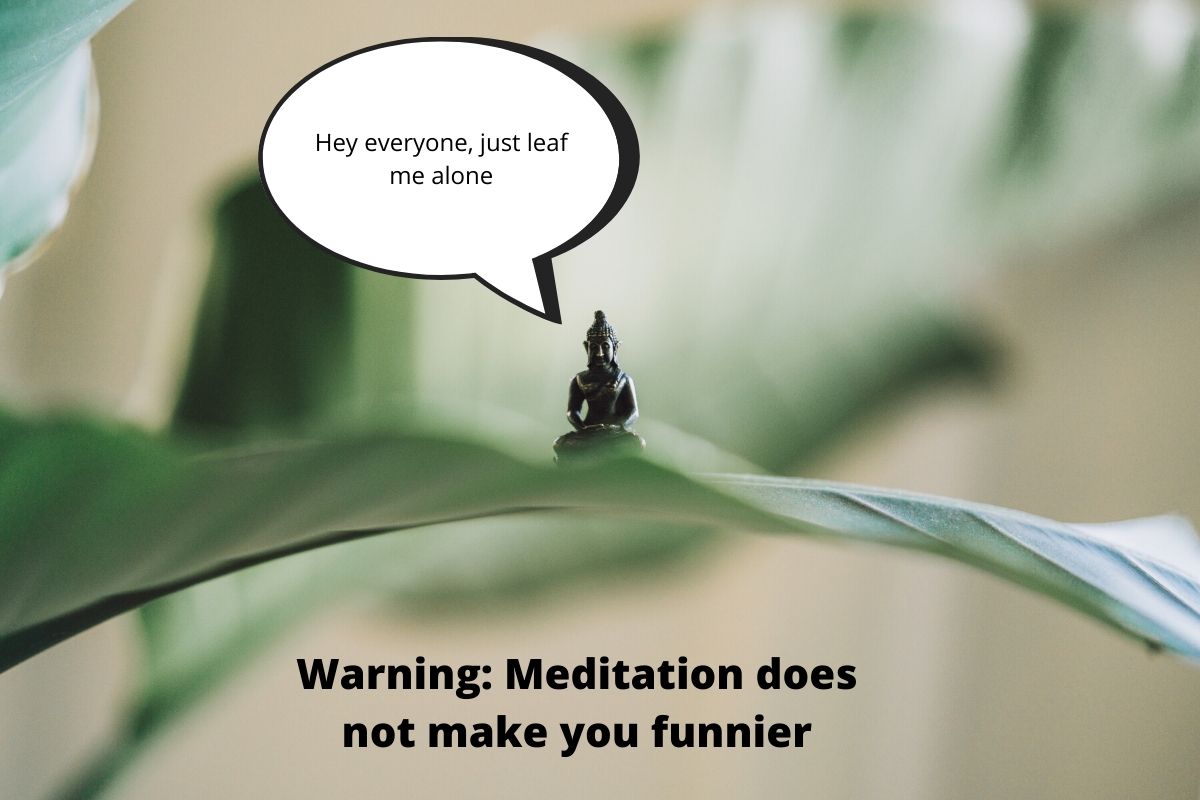
I’ve spoken previously on here about my meditation practice.
I took it up for a number of reasons, including responding to a sense of hypocrisy in myself. I have been recommending for a while that students try meditation but had not been doing it myself.
I’ve now been meditating for around 12 months now -20 minutes, 5 days a week on average.
I use the Waking Up app by Sam Harris as my guide. I like the app because he posts daily meditations as well as a bunch of lessons and interviews and extended and alternative meditations. There is a cost to using the app however, so those looking for a free option should consider Smiling Mind as a starting point.
I had an experience in this morning’s meditation which I considered worthy of writing about.
Let me set the scene.
Most of the daily meditations on the Waking Up app involve variations on the same basic theme. Sit comfortably, close your eyes and then attempt to direct one’s attention to some aspect of experience: feeling of sitting, the breath, sounds, feelings, mood, thoughts of a particular person.
The goal is then to try and sustain one’s attention to that object of experience.
What happens inevitably is that you get wrapped up in thinking (often about something from the past or something coming up), Sam’s voice interrupts and asks you to notice if you’ve been carried away by thought and a provides a gentle nudge to return to the original focus of attention. You repeat this process of directing attention, being distracted, getting caught in thoughts, directing attention over the course of the meditation.
With repetition of this basic meditation, you learn a few things:
- Conscious experience consists of thoughts, feelings, sensations, sounds, sights, smells and tastes.
- We tend to get caught up in the thoughts, feelings and sensations far more readily than the others. Getting caught up in difficult thoughts and feelings is part of what makes us suffer.
- You start to realise that thoughts, feelings and sensations however are just like the other experiences (sights, sounds etc) and can be noticed without necessarily getting caught up in them.
- With practice you can even find a little bit of distance from difficult thoughts and feelings, such that their emotional impact on you is lessened or shortened.
In addition, Sam regularly asks, during the meditation to try to ‘notice who is noticing‘. At first this is just annoying, because you don’t really get what it is he is asking.
After a while though, you start to understand that he is trying to get you to notice if there is still a ‘self‘ that exists, after you have parsed out of experience all the different objects of experience: thoughts, feelings, sensations, sights, sounds, smells, tastes.
You realise that, once you have parsed those elements out, all that is really left is awareness itself. The ‘self’ is awareness, not the content of any particular thought or feeling (which we often use to define ourselves).
This morning I got my first real taste, only momentarily, of what that actually feels like, to encounter that state of pure awareness. It is hard to describe, but it felt like a point of pure energy, located somewhere behind my eyes that could swivel in any direction, focus on anything.
The experience was strong enough that it was followed by a burst of relieved tears.
Of course, like any good meditation experience, I had zero luck accessing it again in the session, but I was certainly glad to have had it at all.
Now I am mindful that any experiences, purporting to be some kind of ‘enlightenment’ or victory experienced during meditation should be treated lightly.
But what it did illustrate to me is a couple of things:
- I’ve been meditating quite a while now and have had only a few such experiences. For me, meditation is a practice that has required patience and commitment before returning significant benefits. This isn’t to negate the benefits experienced by people in quite short timeframes, but it is worth considering if you are contemplating taking it up. Testing it for a couple of weeks might not be sufficient to get benefits.
- There is scope in meditation to have experiences that fundamentally shift your sense of who you are. This can be experienced (as it was this time) as a positive experience, but I have also experienced it as uncomfortable at times. We develop strong narratives about who we are, and to have those challenged can be difficult. It is worth keeping this in mind as you pursue meditation. I’ve heard some trauma therapists say that meditation exercises that focus on the self and the body can be experienced as quite aversive by those with histories of trauma. Tread gently into this space.
If you are a regular meditator, what kinds of experiences have you had that have shifted your sense of who you are?

